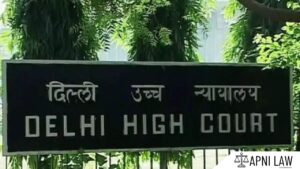On July 20, Chief Justice of India Dr. DY Chandrachud inaugurated the Vigentennial Celebrations at the Madurai Convention Centre. This made the 20th anniversary of the establishment of the Madurai Bench. Moreover, as a permanent bench of the Madras High Court. The event was attended by numerous dignitaries. This includes Supreme Court judges Justices BR Gavai, Surya Kant, MM Sundresh, KV Viswanathan, and R Mahadevan. Also present were Tamil Nadu Advocate General PS Raman and Additional Solicitor General of India AR L Sunderesan.
During the celebrations, the CJI unveiled the Vigentennial Stupa via video conferencing. Justice Sundresh revealed a new name board for the Madurai Bench, reading “Madras Uyar Needhimandram Madurai Amarvu.”
In his address, CJI Chandrachud praised the Madurai Bench for its evolution from a “district Bar” to a “Bar representing the voice of the Bar across India.” He emphasised that establishing a high court bench involves more than infrastructure; it requires setting conventions and traditions for the future. Over the past 20 years, the Madurai Bench has become a true representative of the Madras High Court’s great traditions.
During trial
The CJI highlighted that lawyers and judges from the Madurai Bench are increasingly assuming high positions within the judiciary. He mentioned Supreme Court judges MM Sundresh (a former Madras High Court judge), KV Viswanathan (a member of the Bar Council of Tamil Nadu), and R Mahadevan (a former Madras High Court judge).
The CJI recounted the history of the Madurai Bench, noting that the Madras High Court’s location in northern Tamil Nadu made it inaccessible for many, leading to the establishment of a permanent bench in the southern region. The Madurai Bench, inaugurated on July 24, 2004, has since built a strong reputation with judgments extending beyond Tamil Nadu.
The CJI also stressed the importance of overcoming language barriers to enhance court accessibility. He mentioned initiatives like translating judgments into regional languages and developing e-courts and virtual hearing infrastructure. Nearly 2,000 judgments have been translated into Tamil, and the Madurai Bench has introduced 100 new e-seva kendras to reduce distance barriers.
Furthermore, the CJI praised the Madurai Bench for its progressive judgments on transgender rights, women-centric laws, and sexual harassment prevention. He highlighted that the bench recognized transgender people’s right to marry and extended protections under the POSH Act, 2013, to transgender and intersex women.
The CJI also mentioned that the Madurai Bench was the first High Court campus in the south to install a “Justice Clock,” symbolising the importance of efficient judicial proceedings.
Additionally, the CJI noted that the Delhi High Court set up a Disaster Recovery Centre at the Madurai Bench. It was set up this year to ensure regular data and software backups.
Addressing the issue of low pay for entry-level junior advocates, the CJI urged senior lawyers to offer fair compensation. Thus, emphasising the need for a non-paternalistic approach and recognizing juniors’ contributions. The Madras High Court recently mandated a minimum monthly stipend of Rs 15,000. This is for rural areas and Rs 20,000 in urban centres for junior advocates.
The CJI concluded by admiring the Madurai Bench for democratising the legal profession, allowing lawyers from marginalised sections to thrive.











